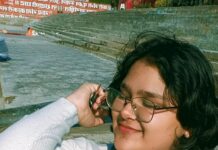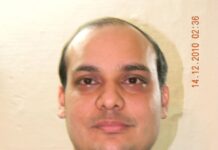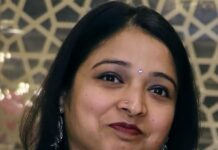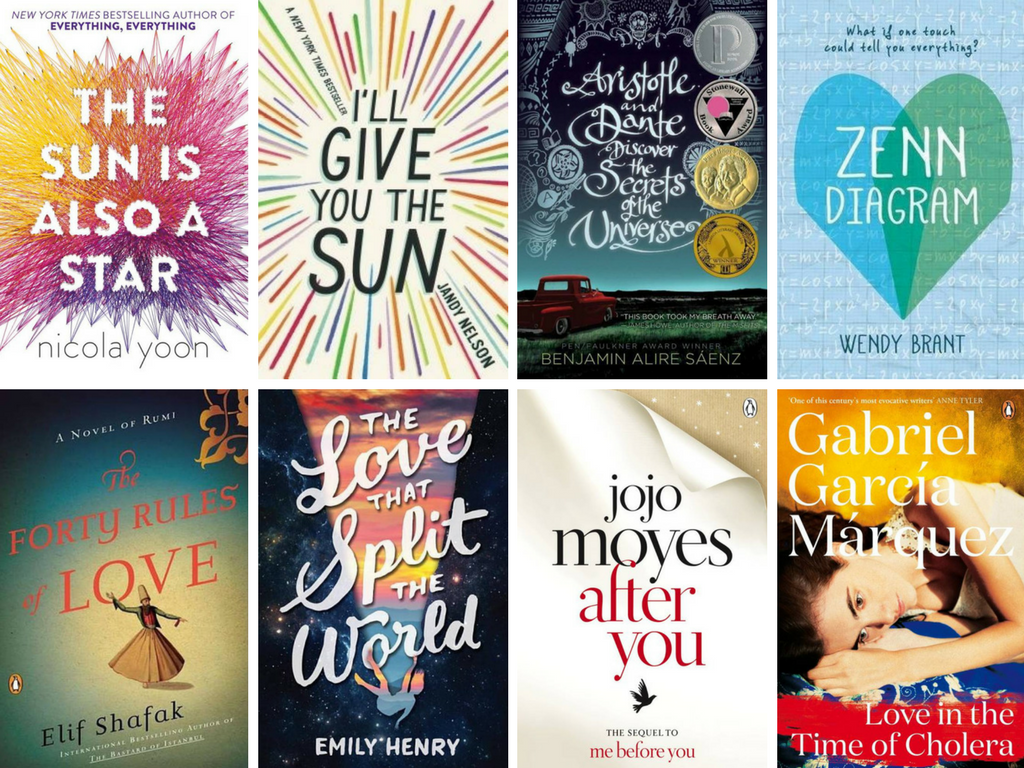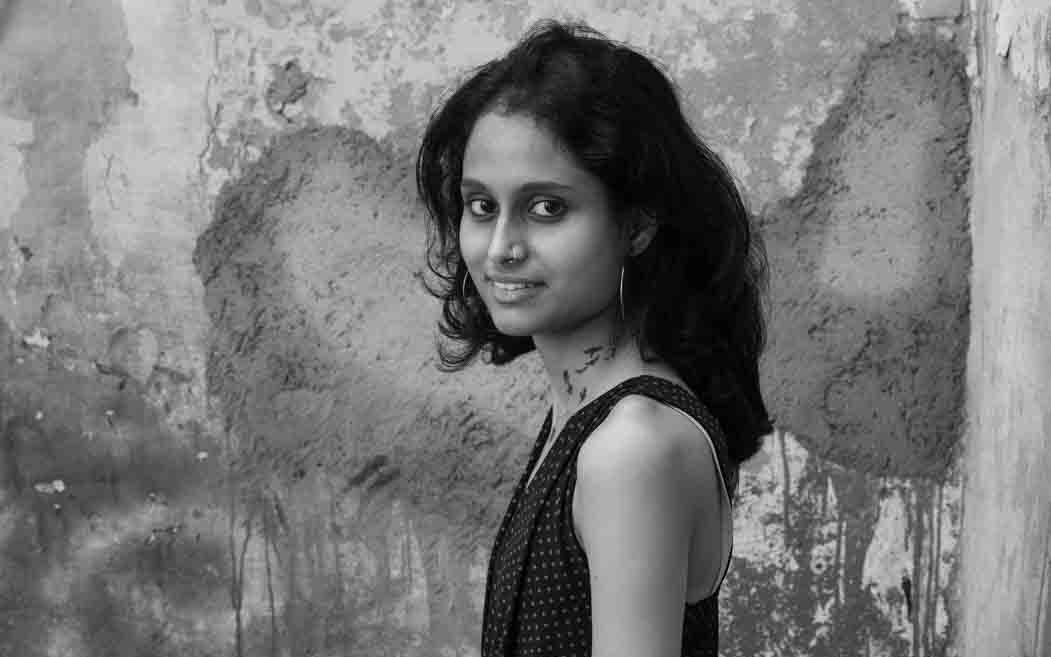
After business school, the corporate world can be stressful. We caught up with the former YUVA(Young Upcoming Versatile Authors) fellow, Aashisha Chakraborty, who published her book ”Mis(s)adventures of a Salesgirl’ inspired by her work as a sales professional.
The story revolves around a Bengali family and their daughter, Enakshi, who lives in Delhi and later moves to Chennai for her internship. The story portrays the problems women work in the sales force face and the prejudices against them in a tongue-in-cheek way. This book gives the reader all the laughs and the feels. In this interview, the author shares her inspiration for writing this book, balancing her career as a sales professional and author, and more. Excerpts:
1. Tell us about your transition from a sales executive to an author, literature speaker, and former YUVA (Young Upcoming Versatile Authors) fellow.
Once a writer, always a writer. From childhood, when I started writing my diary then switched to scribble endlessly and mindlessly on the notes app on my phone, it has been an exhilarating journey. I battled with many feelings, people and circumstances to get where I am today- an author with a book to my name. Whether as a product developer or a sales manager, stories dogged me every step of the way, and I had to write one eventually. As a blogger, I would pen down snippets and do A-Z challenges which then moved to NaPoWriMo or National Poetry Writing Month, where I wrote one poem daily. The sheer fecundity of the exercise was such that I knew I could write a complete story now. And then, the Times of India came in with its crowd-sourced platform, and multiple writing stars promoted it.
I wrote. I won. I did not look back.
My novel happened a year after Write India. I was glad I had started writing for newspapers, e-mags and anthologies by then because my debut ‘Mis(s)adventures of a Salesgirl’ was an idea that sprung out of the blue at me. I decided to make it into a book. However, a long wait followed. After persisting through the pandemic, waiting, watching, and wallowing, I began writing again when the Prime Minister’s YUVA fellowship came in—a deadline with extensive research. Hell yeah, I said, challenge accepted. There went my second work of fiction- ‘The 13-year-old Queen and her inherited destiny.‘ Sometimes, stories choose the writer, and I find it true for my first two books. As my writing career progresses, I have more stories to write. I have yet to write those.
2. Was it a transition, or were you balancing different things together?
We are different people during the day. I work as a sales manager during the day and writer at night. I am a philosopher if you find me in life’s voids; if you spot me in a disc, I am a dancer having fun; and if you see me at a candy shop, I am a hungry child. I have always loved to dabble and juggle, hyperactively moving from one hobby to the next. Over time, I have learnt that balance is the key to how a dabbler and juggler work. So, yes, I work constantly to prevent the oil of life from escaping my grasp. But that is where I find the excitement—maintaining the balance by handling this, accommodating changes, achieving something and experiencing something new. Perhaps a part of my dopamine rush stems from the successful execution of the delicate balance between the sublime and the necessary. It is hard but very much worth it.
3. How did you make that leap of faith, if there was a transition, and how was the journey? Alternatively, if it’s about juggling multiple tasks, how did you find the time?
I look for interstices everywhere, pockets of time when I can let my mind breathe and allow my creative butterfly to take flight. I write or think or wonder during these empty time and space pockets. And in these crevices, I do those quirky things which cannot be scheduled or given pride of place on my timetable.
Multitasking is a misnomer; it is the art of detecting white spaces in your day and using them for what you love because time, my dear readers, is one of our most valuable commodities.

4. Where did the inspiration for ‘Mis(s)adventures of a Salesgirl’ stem?
My first stint in corporate sales opened me up to an entirely different world, where business school theories seemed kiddish, practical challenges overwhelmed me, and gender became a topic of discussion again. When I was stranded in the middle of nowhere as the only saleswoman in the entire sales department in a land where I didn’t know the language, I decided to tell this story no matter what. That’s where the misadventures of a salesgirl emerged from the bits and pieces of various exploits and capers of the salespeople around me. Sales is a quirky profession, one where I thought only extroverts ruled. What happens when an introverted woman enters the arena? What kind of battering can a fresh recruit expect? Sometimes, I would chuckle at how I sometimes handled things and others when I would facepalm at my naivety. More people should know what happens in this world and whether it’s as tough as they say. I envisaged ‘Mis(s)adventures of a Salesgirl’ as the story of a girl who blunders into sales and, by sheer tenacity, makes it out triumphant while wading through her misadventures on the way. My inspiration? The last mile that connects sales executives who plod along daily despite the heat, cold or even pandemics.
5. Tell us about the first book you read that made you cry.
I thrive on emotions, and it took me a long time to take literary worlds less seriously.
I have cried while reading Jane Eyre, Atonement, The Time Traveler’s Wife, and even Harry Potter. I used to read and re-read my favourites and feel my heart wrench from within, twisting, turning, hurting, and growing. I have had quite a few heartbreaks, and most of them were from bookish universes.
6. What are some of your life’s passions?
I am nuts for books. And for words- words that take me to a different level and another universe altogether. I enjoy music almost as much as I enjoy reading. As a food lover and a fitness freak, I love running, hiking, and power yoga. I also gravitate towards sinful things like wafers, chocolates, gin, and others. So, yes, a bundle of contradictions. But then, I crave anything that pushes my limits.
7. Which animal, and why, best embodies your writing style?
I wanted to say unicorn or even a panda, but incredibly, I feel like a turtle (that’s how I described the protagonist of my debut as well) simply because I stay in my self-styled shell unless coaxed out. Also, I love sleeping; I can sleep for 15 hours at a stretch if not woken up.
8. Describe a lesser-known aspect of Aashisha for us.
I’m a “visharad”, a trained Kathak dancer who has also dabbled in art (recently mandalas and previously sketching, graffiti and a few watercolours). I’m also afraid of all insects and reptiles; they give me heebie-jeebies.
9. Do you believe that a writer needs to have strong emotions?
There are no should nor shouldn’t when it comes to writing. But it so happens that those who spend a lot of time pondering over things and overthinking themselves to bits generally tend to be sensitive and feel strongly about certain things close to their heart. Not every writer has their heart up their sleeve. But most are discerning, observant and passionate enough to meticulously pen down their thoughts and write tomes about things, worlds, people and ideas they respect. Writers become writers because of their passion, their need to express themselves, and their need to be heard.
10. Do you have any recommendations for aspiring writers?
Read. Write. Edit. Repeat.
There is no shortcut to writing a novel, not even ChatGPT (unless you want ‘written with the help of AI’ printed on your book). It is the most elemental of skills needed to become a writer.
As a first-time author, it is common to experience self-doubt, and it is tough to abandon those fears and and stop yourself from plunging into a judgmental reader space.
11. What do you believe determines a book’s success?
A book is a reflection of the author’s thoughts and feelings. It builds a readership. Only an honest and forthright writer can win the heart of a reader. When you write from the heart, it is visible in your writing style. A reader and a writer might develop a special bond; in every discussion of the book, you will see that the reader fondly remembers it and that’s when a book is rightly successful.
12. Any advice for our aspiring writers?
Be patient. Patience, resilience, and humility are three traits that have stood the test of time and that no one can surpass. Young writers must understand that the path to their dreams is challenging, uncertain, and long. Only the most patient and toughest ones can survive to tell their glorious tale.
13. How can readers help you in your work as a writer?
Readers can support by doing what they do best: reading as much as possible. Readers can help writers with reviews and feedback in whatever forms possible and by exploring as many forms, languages, and genres as possible. When readers read without limitations on the kind of author, book, or genre they select, the chances of discovering a new author increase.


